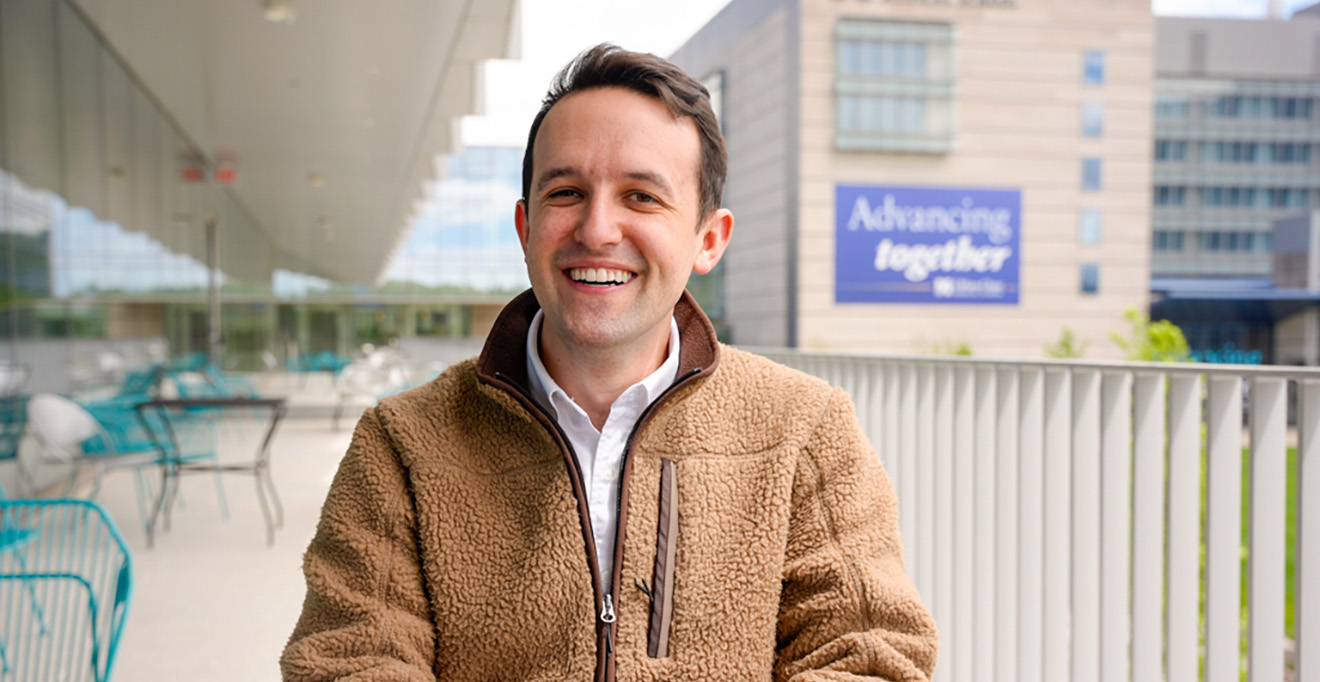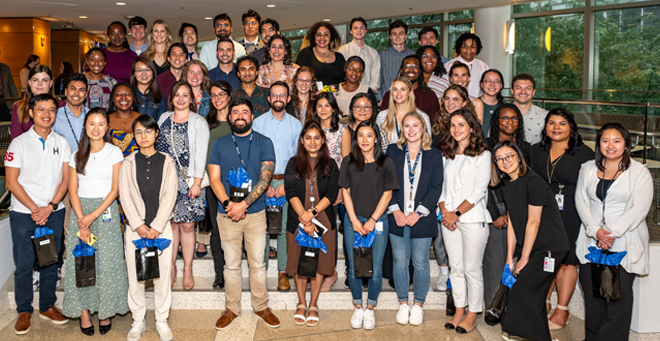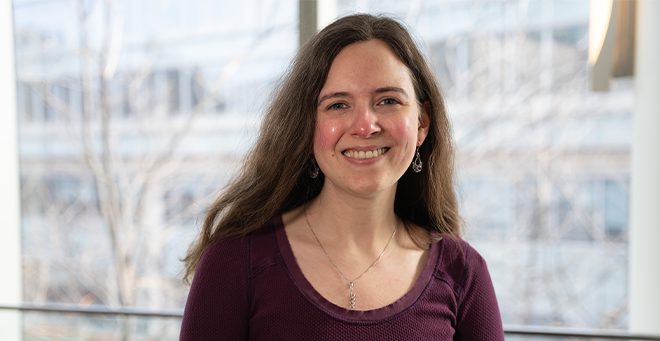
Photo: Hallie Leo
PhD candidate Bradley Class has been awarded a Ruth L. Kirschstein National Research Service Award Individual Predoctoral Fellowship to further his research into the correlation between neuron mutations and ataxia-telangiectasia, a rare disease characterized by impaired motor function, dilated blood vessels and a weakened immune system.
“I pursued a PhD because I wanted a seat at the table where impactful decisions are made,” said Class, a Maryland native who studied Spanish and cell and molecular biology at Washington & Jefferson College in Pennsylvania. Before graduate school, he spent a decade working across government and industry, including roles at the National Institutes of Health and AstraZeneca. “Coming back to school was daunting at first, but it’s been energizing. I’ve met incredible people and found new ways to chase questions that keep me curious.”
At the Morningside Graduate School of Biomedical Sciences at UMass Chan Medical School, he studies neuron mutations in the lab of Michael Lodato, PhD, assistant professor of molecular, cell & cancer biology. His research mainly focuses on ataxia-telangiectasia (A-T), or Louis-Bar syndrome, a genetic condition caused by mutations in a protein that typically senses when DNA strands are broken.
“Some people with A-T have clinical issues like increased cancer incidence and immune dysfunction. Also, for some reason, the cerebellum degenerates over time,” said Class, who hopes to use NIH funding to attend a conference or bolster his knowledge of computational techniques. “My project aims to isolate this very rare cell type that dies over the course of the disease and apply single cell genomics to study how cells from people with A-T compare to people without the disease.”
“Brad’s work studies a fatal genetic disease in bold and exciting new ways,” said Dr. Lodato. “He’s developed an innovative strategy to isolate the most important cell type in A-T called the Purkinje neuron, which I’ve been trying to do for many years to no avail. Brad developed a robust and reproducible protocol to purify these cells—a major accomplishment that’ll benefit my lab and the entire field.”
“I’m so fortunate to have Brad in my lab,” continued Lodato, who emphasized that Class’s research is critical to identifying druggable targets that could lead to treatment for A-T, which currently has no known cure. “I love talking with him since he always brings unique perspectives and elevates the conversation.”
Outside of the lab, Class said he likes bringing people together, playing music, embroidering and volunteering at Court Appointed Special Advocates, supporting children in foster care. He covered his dog, Birdie’s, ears to disclose that he is also a collaborator at Tufts Veterinary School, aiding their efforts to understand how dog neuron mutations compare to those in humans.
“NIH funding helps make these projects happen,” he said.


